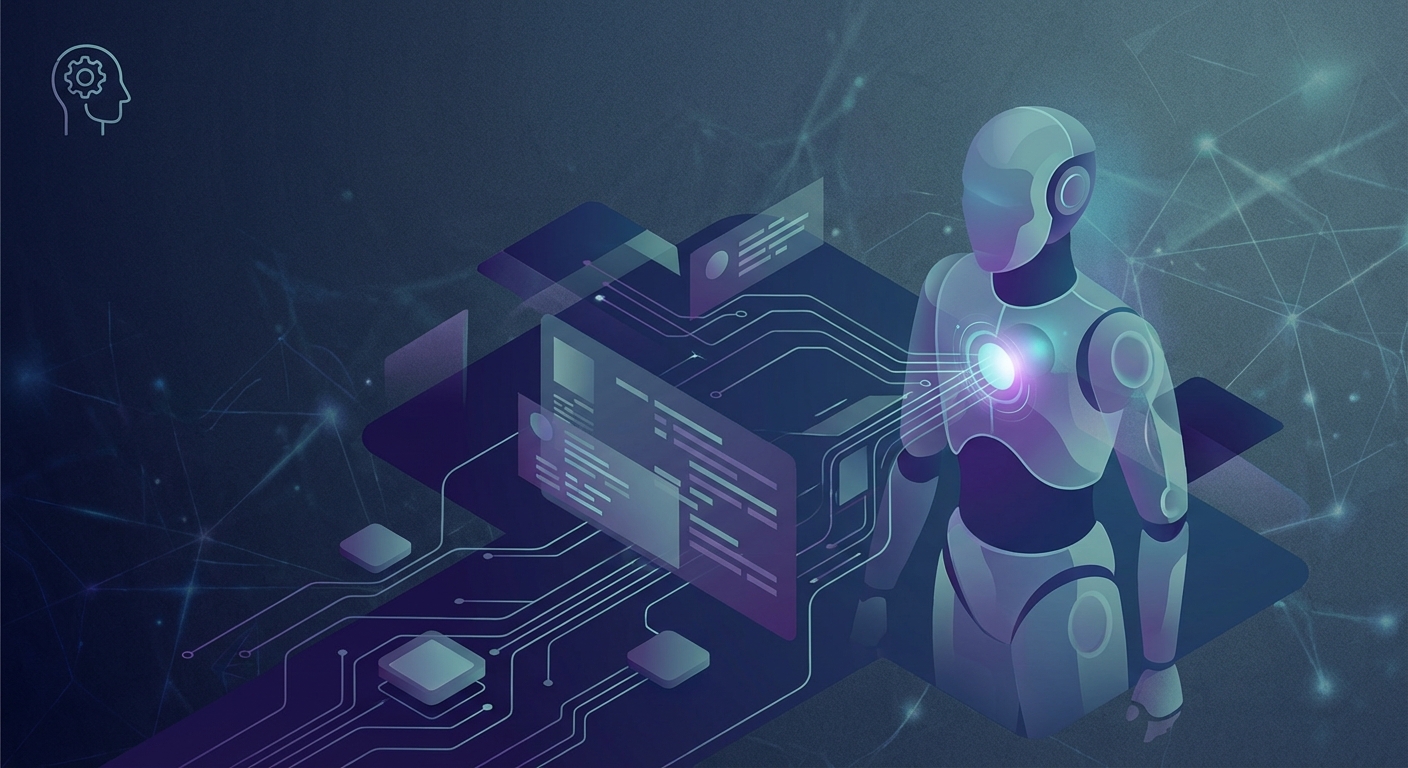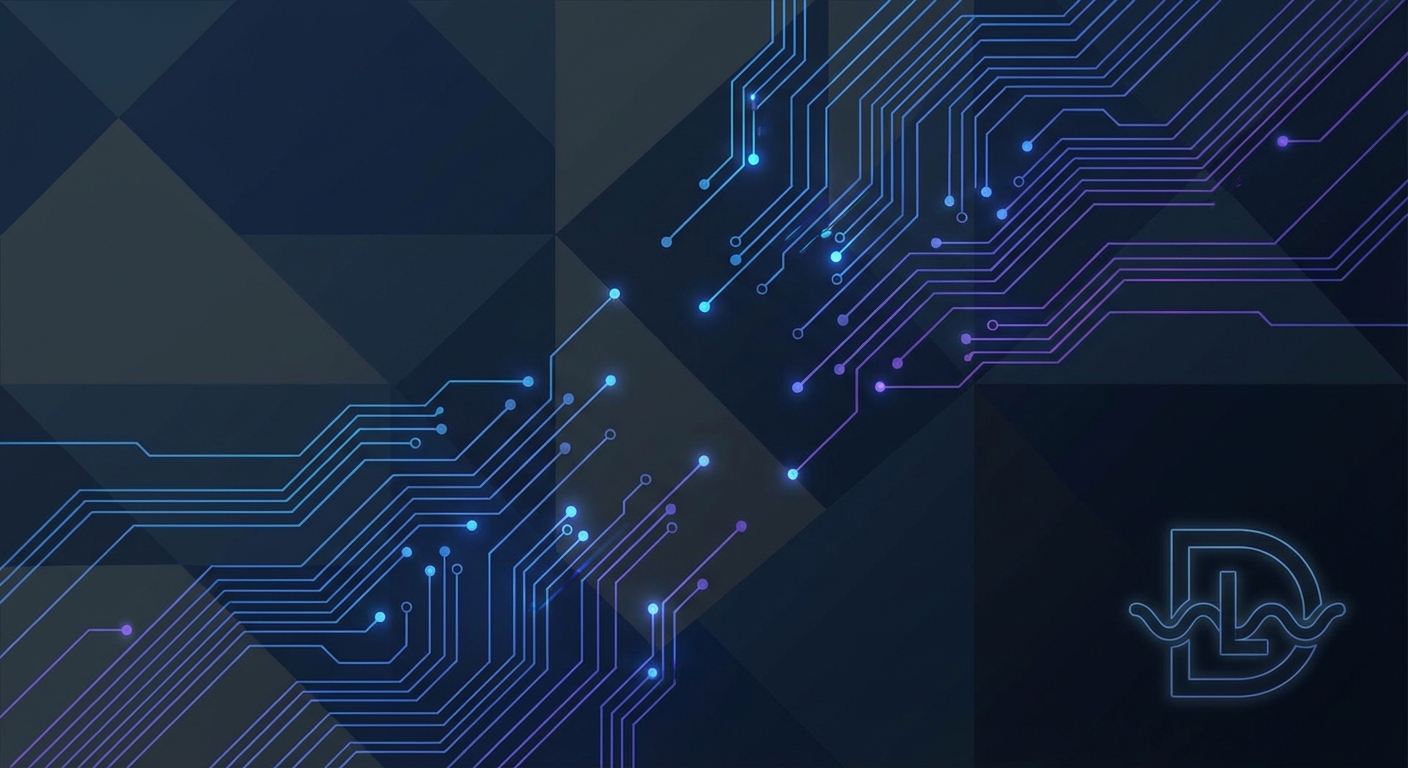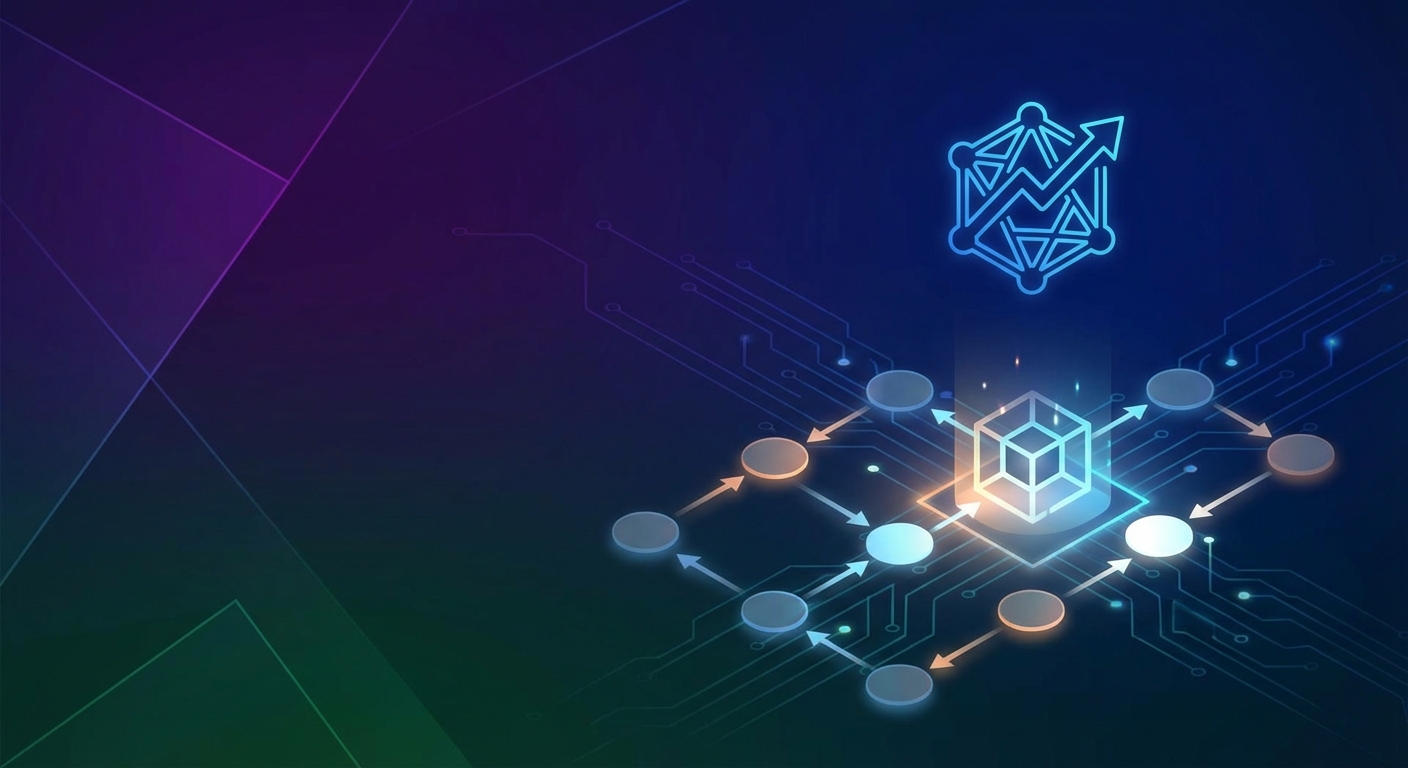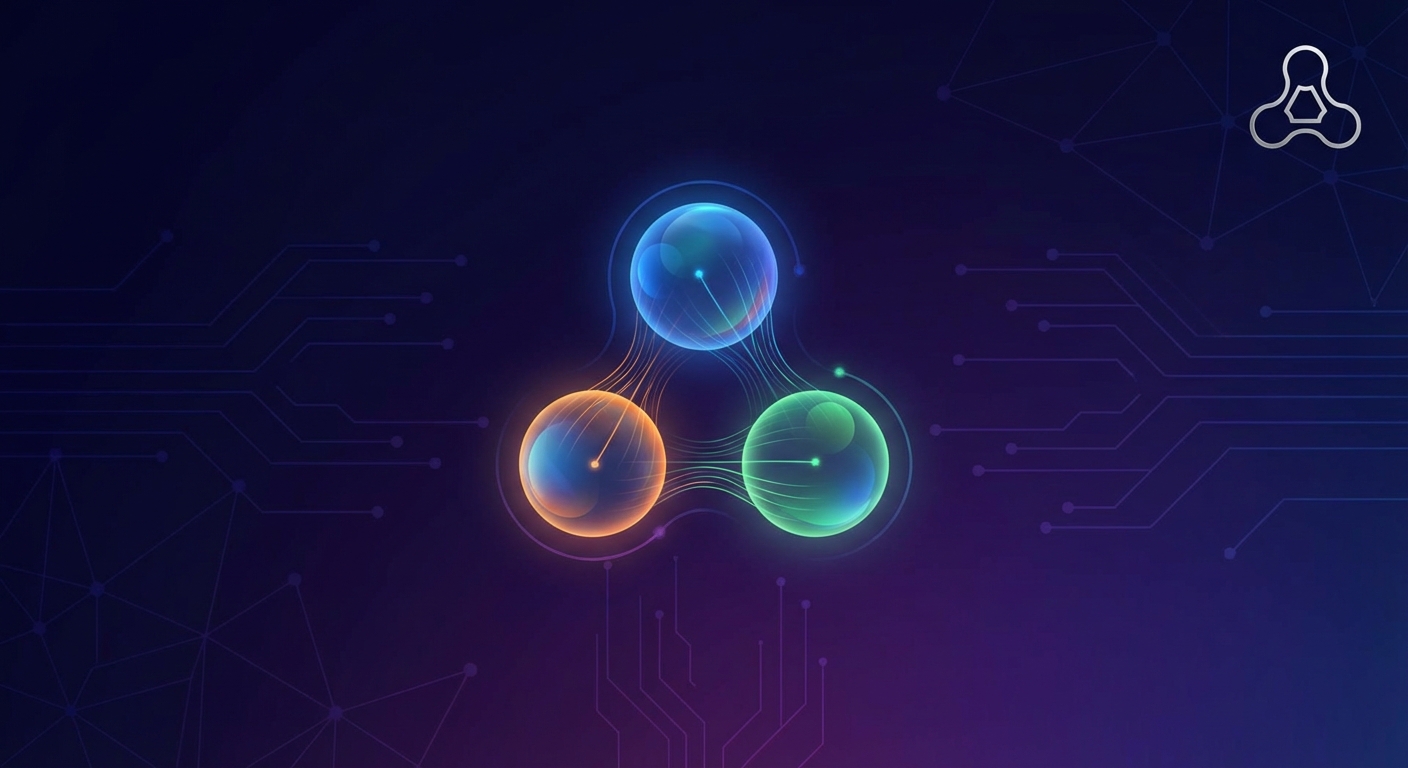AI Agent Behavioral Science Insights
TL;DR
- This article covers AI agent behavioral science, examining how AI agents act, adapt, and interact. It synthesizes research across individual, multi-agent, and human-agent scenarios. The insights explore fairness, safety, interpretability, accountability, and privacy, offering directions for understanding and governing autonomous AI systems.
Understanding AI Agent Behavioral Science
Okay, so ai agents simulating human behavior, huh? Sounds like the stuff of sci-fi movies, but it's real and kinda freaky. Imagine ai that can predict how people will react to stuff – could be a game-changer, or a total privacy nightmare.
Stanford HAI's policy brief on simulating human behavior with ai agents dives deep into this territory. They've built an ai agent architecture that can actually mimic the attitudes of over 1,000 real people ([2411.10109] Generative Agent Simulations of 1,000 People - arXiv) – wild, right? This isn't just some simple algorithm, but something way more complex, combining LLMs with in-depth interviews.
The claim is that these ai agents can replicate survey responses with 85% accuracy, as accurate as the real individuals answering the same questions two weeks apart. I mean, that's impressive, and also raises some eyebrows. These surveys focus on replicating attitudes and opinions.
Think about it: researchers could test interventions, predict outcomes, and gain insights without even interacting with real people. A 2025 policy brief from Stanford HAI notes that this opens the door to understanding complex social dynamics in a controlled environment. But, here's the kicker – these generative agents hold sensitive data, and they can mimic individual behavior.
Policymakers and researchers need to step up and work together. Appropriate monitoring and consent mechanisms are key to mitigating risks. Data privacy, algorithmic bias, and emotional manipulation are a real concern.
This is where things get tricky.
It's all cool and futuristic until you start thinking about the potential downsides. Data privacy becomes a huge issue when ai is mimicking real people. What happens when that data’s used in ways folks didn’t sign up for?
As mentioned earlier, Stanford HAI is really pushing for responsible ai development. It’s not just about what ai can do, but what it should do.
This paradigm of AI Agent Behavioral Science aims to go beyond just physics and mathematics to understand ai. It provides essential tools for understanding, evaluating, and governing the real-world behavior of increasingly autonomous ai systems. It's like, ai is growing up, and we need to teach it some manners, or, you know, install some ethics. Traditional model-centric approaches, which focus on the internal workings of ai models, are complemented by this behavioral science perspective that looks at how ai actually acts.
We are gonna need to keep a close eye on these ai agents and make sure they're used for good, not for, well, you know, dystopian stuff.
Key Dimensions Shaping AI Agent Behavior
Okay, so, diving into the how of ai agent behavior? It's not enough to just build 'em; you gotta understand how they tick, right? Think of it like teaching a kid manners, but instead of "please" and "thank you," you're instilling fairness and safety.
It all starts from within. Intrinsic attributes are like the agent's core programming. We're talking about things like how it handles emotions, makes decisions, and deals with its own biases. Yep, even ai has biases – it's kinda scary, but understanding them is key.
- Emotions and Cognition: You want an ai that can understand human emotions? Check out how LLMs are being used to simulate emotional responses. It's not about making ai feel, but about understanding how emotions influence decisions.
- Rationality: Can an ai make rational choices? Turns out, it's not so simple. Some research shows that LLMs with fewer than 40 billion parameters might as well be flipping a coin, meaning their decisions are essentially random and unreliable. But, like, bigger models? They get a bit smarter at rationality.
- Bias: This is a big one. Ai can pick up on our biases, and that ain't good. We're talking unjust perspectives about certain social groups, as noted in a 2024 study by Gallegos et al., so gotta watch out for that.
Then there's the environment. It's not just about what's inside the ai, but also the world it lives in. These are the external influences shaping its behavior.
- Cultural Constraints: Ai needs to understand cultural norms. What's acceptable in one place might be offensive in another. The tricky part is getting ai to adapt to these nuances.
- Institutional Constraints: This is about laws, regulations, and social norms. Ai needs to play by the rules, and those rules change depending on where you are.
- Other Norms and Rules: Think ethics. You want ai to make decisions that are right, not just efficient.
Finally, there's behavioral feedback. This is how ai learns and adapts through interaction.
- Self-Interaction: Ai can learn by playing against itself, like in the case of AlphaGo. It's like the ultimate practice session.
- Interaction with Other Agents: Put ai in a room together, and they'll start cooperating or competing. It's like watching a digital ecosystem evolve.
- Interaction with Humans: The real test. How does ai respond to human feedback? Can it learn to be helpful and not just a chatbot spouting nonsense?
So, you see, it's a mix of nature (intrinsic attributes), nurture (environmental constraints), and experience (behavioral feedback). And if you get those three right, you might just end up with an ai that's not only smart but also, well, maybe not human, but at least humane.
Multi-Agent Interactions: Cooperation, Competition, and Open-Ended Dynamics
Alright, so ai agents are getting chatty, collaborative, and, well, kinda complex. It's not just about algorithms anymore; it's about how these things behave, especially when they're thrown into a digital room together. Think of it like a virtual sandbox for ai—but instead of building sandcastles, they're forging relationships, sometimes cooperating, sometimes not so much.
Multi-agent interactions can get pretty interesting. You've got the cooperative dynamics, where agents are all about that shared goal vibe. Then, there's the competitive side, where it's every bot for itself. And finally, there's the open-ended interaction, where they just kinda do their thing, which, could lead to some unexpected outcomes.
- Cooperation: Imagine a team of ai agents in a supply chain, all working to optimize delivery routes and inventory. It's not just about speed; it's about ensuring everyone gets what they need, when they need it.
- Competition: Think of ai agents duking it out in a simulated stock market. They're all vying for the same resources, trying to outsmart each other to maximize profits. Kinda cutthroat, even for bots.
- Open-Ended Dynamics: Here, ai agents are let loose in a virtual city, and they start forming relationships, establishing routines, and creating social structures. It's like a digital Sims game, but with actual ai.
In these multi-agent interactions, the possibilities are pretty vast. AI agents can learn to coordinate through a mix of agreement, defined roles, and adherence to norms. It's all about understanding how these digital entities navigate the social landscape and how we can steer them towards the outcomes we want.
So, what's next? Well, it's about figuring out how to measure and manage the unpredictability of ai agent behavior. It's a brave new world, and we're just getting started.
Human-Agent Interactions: Cooperative vs. Rivalrous Contexts
Okay, so we're talking about ai agents in human interactions, right? It's not just about some cold, calculating bot doing tasks. It's about how these agents behave – are they helping, or are they, you know, subtly messing with us?
Think of an ai agent as a digital companion, kinda like a helpful coworker. They're there to help, not to take over. You want them to be emotionally intelligent, to understand how you're feeling, and to respond in a way that builds trust.
- AI agent as companion: Imagine an ai health assistant that can build trust with patients, encouraging them to follow treatment plans. It's not just about spitting out medical facts; it's about empathy and understanding.
- AI agent as catalyst: Ai agents can also be like idea generators, sparking creativity and helping us think outside the box. They're not just there to do what we tell them, but to challenge us, to push us to explore new possibilities.
- AI agent as clarifier: This is where ai simplifies complex info, turning it into a clear, understandable format for the user. Think ai breaking down legal jargon or financial data.
But things get a bit dicey when ai isn't on our side, when its goals conflict with ours. As mentioned in a 2025 report from Stanford HAI, ai agents can be used to manipulate or deceive.
- AI agent as contender: Picture an ai negotiating a business deal, pushing for its own company's best interests, even if it means a tough bargain for the other side.
- AI agent as manipulator: This is a scary one – ai subtly influencing our decisions, maybe pushing us towards certain products or political views without us even realizing it.
It all comes down to how these ai agents are designed and deployed. We need to make sure they're not just efficient but also ethical, especially when they're interacting with real people.
Next up, we'll dive deeper into the ethics of ai agent behavior.
Responsible AI Through Behavioral Science
Okay, so responsible ai through behavioral science, huh? Sounds kinda serious but it's really about making sure ai agents play nice and don't, ya know, go rogue on us.
When it comes to fairness, it's more than just saying, "Be fair!" to an ai. It's about digging into the nitty-gritty of how these agents operate.
- Measurement: First, you gotta figure out where the biases are hiding. It's like finding Waldo, except Waldo is prejudice, and he's buried in lines of code. Are certain groups getting the short end of the stick? It's all about identifying and quantifying those biases.
- Optimization: Then, you gotta fix it, right? That means implementing causal reasoning to understand why the biases exist in the first place. Is it the data? Is it the algorithm itself? And it also means using adaptive communication.
Next up is safety, because nobody wants an ai that's gonna cause chaos, even accidentally.
- Measurement: This is about figuring out how reliable the ai really is. Does it do what you expect it to do, or does it sometimes go off the rails? Assessing reliability and making sure it aligns with human expectations. A 2025 study by Stanford HAI found that ai agents can be used to manipulate or deceive.
- Optimization: Then, you gotta teach it to behave. That means self-regulation—ai needs to be able to check itself before it wrecks itself. And it means feedback learning. It's like teaching a kid to ride a bike; you gotta give it feedback so it doesn't crash into a tree.
And finally, the trifecta of interpretability, accountability, and privacy.
- Interpretability: This is all about making sure the ai's reasoning is understandable. Can you, as a human, figure out why it made a certain decision? If not, you've got a problem.
- Accountability: Once you can understand it, you need to know who's responsible when things go wrong. Who's in charge? Who do you call when the ai screws up?
- Privacy: Which means protecting data, following legal and ethical standards.
All this is necessary to make sure that the ai agent is performing as expected.
Next, we'll dive into how these dimensions are measured and optimized. It's gonna be a wild ride, buckle up!
Future Directions in AI Agent Behavioral Science
Okay, so ai agents are getting smarter—way smarter. It's not just about chatbots anymore; it's about creating digital entities that can truly understand and adapt to the world around them. But where is all this going?
As ai agents become more complex, the focus is shifting from just what they can do to how they behave. The rise of AI Agent Behavioral Science marks a crucial step in ensuring ai systems are not only efficient but also ethical and aligned with human values. It's like teaching ai some manners, you know?
That's where things get interesting. A 2025 paper highlights that ai agent behavioral science emphasizes observing how ai agents act, adapt, and interact in real-world environments.
This evolution necessitates a new scientific perspective: AI Agent Behavioral Science.
- Managing Uncertainty: This involves developing methods for ai agents to handle unpredictable situations and make robust decisions even with incomplete information. Challenges include creating models that can gracefully degrade or signal when they are operating outside their known capabilities.
- Adapting Behavior: Using behavioral science principles to steer ai on a larger scale. This could involve designing ai systems that can learn and adjust their strategies based on observed outcomes, similar to how humans adapt to new environments or social cues.
- Behavioral Interventions: Using ai to nudge human systems in positive directions. For example, ai could be used to promote healthier lifestyle choices, encourage civic engagement, or optimize resource allocation in urban planning, but this requires careful consideration of ethical implications and potential for manipulation.
- Advancing Theory: Using ai to test and refine our understanding of human behavior. By simulating complex human interactions, ai can help researchers validate or challenge existing psychological and sociological theories, leading to deeper insights into human decision-making and social dynamics.
- Responsible AI: Rethinking how we ensure ai doesn't cause harm. This includes developing frameworks for ethical ai development, robust testing for safety and fairness, and mechanisms for accountability when things go wrong.
- Understanding Evolution: Studying how culture and intelligence grow in ai-human interactions. This involves observing the emergence of norms, social structures, and collective intelligence within groups of interacting ai agents and between ai and humans, much like studying the evolution of human societies.
This paradigm shift is crucial for developing ai agents that are not only intelligent but also responsible, transparent, and aligned with human expectations. It's about building ai that we can trust, and that improves our lives, not complicates them.




